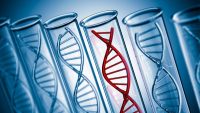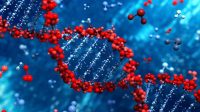With just over a month till the MarketsandMarkets BioPharma Series kicks off in Boston on the 23rd & 24th of June 2022, we believed it would be apt to unveil a glimpse of the enriching insights our esteemed speakers shall be bringing to the tri-conference event.
On the eve of our 3rd Annual MarketsandMarkets Single-Cell Analysis Conference, we sat down with Jun Wang, Associate Professor (Department of Biomedical Engineering) at Stony Brook University, New York who is also a keynote speaker at the conference.
As part of the conversation, we asked him to share with us a fraction of his presentation, the entirety of which we truly look forward to. Here’s what he had to say:
1. What are the recent advances in single-cell analysis and current challenges that need our immediate attention?
- Spatial transcriptomics and spatial epigenomics are one of the most recent advances in the single-cell analysis field. Both bring spatial information back to sequencing results, while a majority of single-cell sequencing lacks the spatial context for a tissue sample.
- Another notable advance is single-cell proteomics. In recent years, this field has finally had certain breakthroughs. For example, my group can analyse hundreds of important proteins from single neurons.
2. What are noteworthy points from your presentation which shall help educate the collection of conference attendees?
- I’ll be presenting a new single-cell technology which, for the first time, measures hundreds of proteins in single cells. One key take away is that this cyclic microchip-based technology can measure 10X or more functional protein types than other cutting-edge approaches. We focus on functional proteins because they play the central role in regulation and signalling transduction for cells.
- Another focus of attention is that we discovered the functional alterations during neurodegeneration through single-cell functional proteome studies. Critical proteins and pathways for brain subpopulations are uncovered through our assays. It provides a new perspective on how different signalling pathways participate in neurodegeneration. Our results are more closely relevant to cells’ physiology and functions than sequencing-based techniques.
_________________________________________________________________________________________________________________________________
Jun Wang is an Associate Professor in the Department of Biomedical Engineering at Stony Brook University. Prior to joining SBU, he was an assistant professor in the Chemistry Department of SUNY Albany. He received his postdoctoral training in the Department of Chemistry and the NanoSystems Biology Cancer Center at the California Institute of Technology. He obtained his Ph.D. in Biological Engineering from Purdue University. He has received several top awards including Chorafas Foundation prize.
CLICK HERE TO EXPLORE & REGISTER FOR THE EVENT or reach out to us at [email protected] regarding any queries you may have.
Keep an eye out on this space for more excerpts from key industry leaders sharing their outlook on the latest innovations, challenges & the path forward!
Ayush Kanitkar
MarketsandMarkets
+91-8975985061





